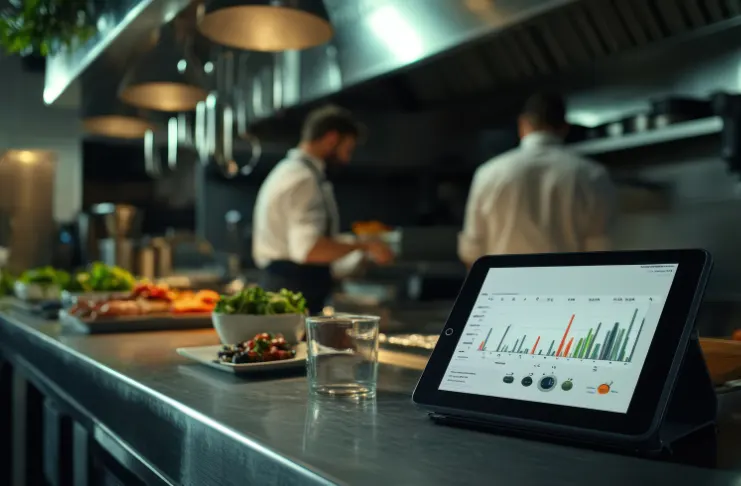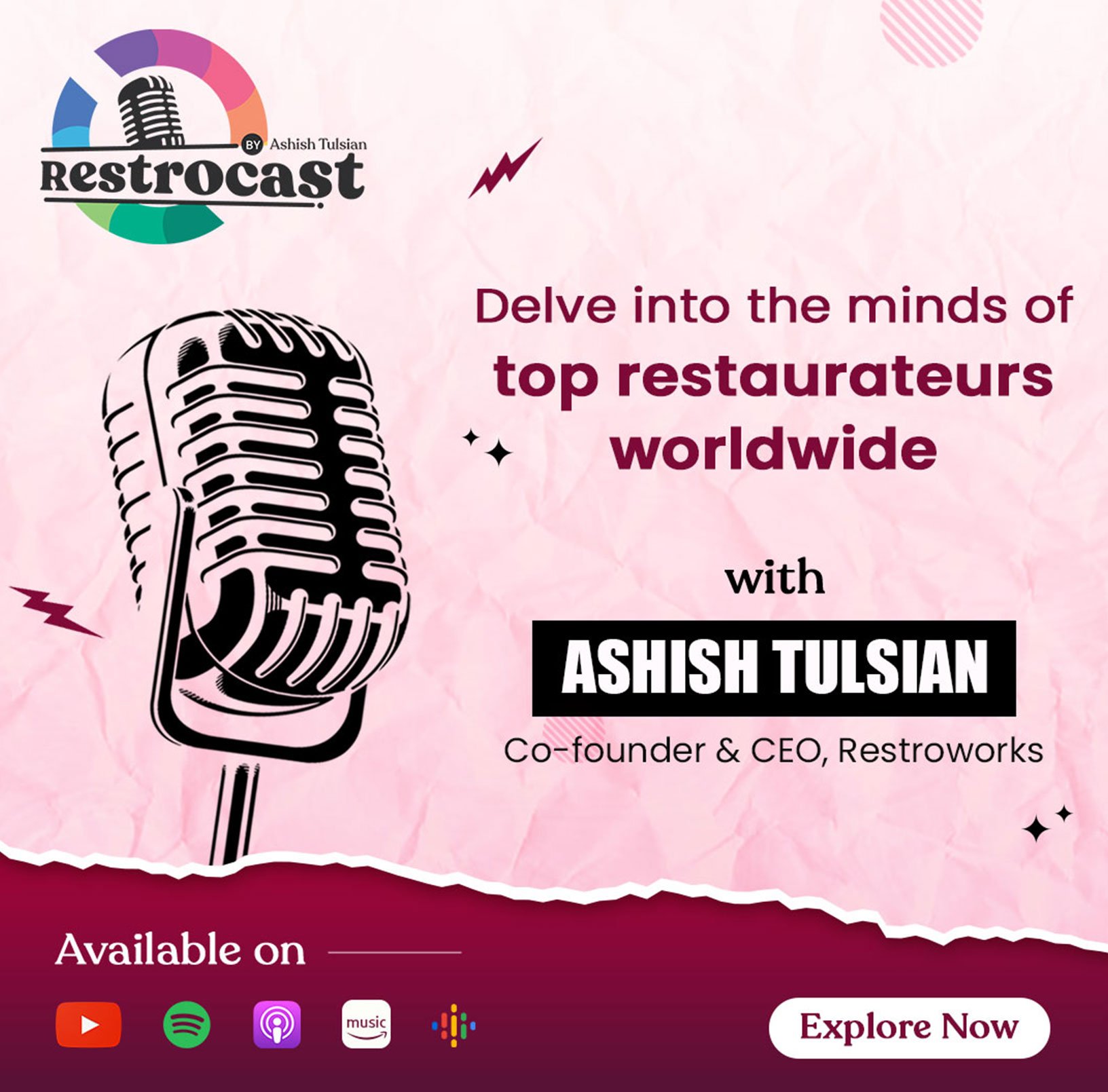
Table of Contents
ToggleIn today’s competitive restaurant industry, serving great food is no longer enough. To stand out, restaurants must understand their customers and offer personalized experiences. This is where restaurant customer relationship management (CRM) becomes essential. By integrating a CRM system, restaurants can strengthen customer relationships, boost loyalty, and achieve long-term revenue growth.
Restaurant CRM tools transform how restaurants interact with their guests. They use customer data to personalize services, improve operations, and create memorable dining experiences. This blog explores the importance of restaurant CRM, its key features, types, and benefits, and how it’s reshaping the dining industry.
What Is Restaurant Customer Relationship Management?
Restaurant customer relationship management is a specialized system designed to track, analyze, and optimize customer interactions in the restaurant industry. Unlike generic CRM systems, restaurant-specific CRM tools cater to the unique needs of dining establishments. From managing reservations and order histories to understanding guest preferences and feedback, these systems ensure that every customer touchpoint is carefully curated.
A customer relationship management system enables restaurants to centralize guest data, facilitating seamless communication across dine-in, online orders, and email campaigns. By capturing insights on individual customers, these systems empower restaurants to deliver personalized experiences that enhance loyalty and satisfaction.
It integrates with POS systems, reservation platforms, and marketing tools to create rich guest profiles that include:
- Contact details
- Dining preferences and allergies
- Order history and visit frequency
- Feedback and reviews
- Loyalty program activity
Key Features of a Restaurant CRM System
An effective restaurant customer relationship management system offers a suite of features that enable restaurants to build and maintain stronger customer relationships. Here are the essential components you should look for:
1. Guest Profiles
Build detailed records for each customer, including their preferences, order patterns, birthday, visit frequency, and allergies. This information empowers servers and managers to offer personalized experiences.
2. Reservation & Table Management Integration
Connect your CRM with reservation platforms to streamline guest bookings and automatically update guest profiles with visit information.
3. Order History & Behavior Tracking
Track what customers order, how much they spend, and how often they visit. This data helps identify top customers and predict future behavior.
4. Marketing Automation
Launch email and SMS campaigns based on guest behavior—such as lapsed customer reactivation, birthday greetings, or promotions for favorite dishes.
5. Loyalty Program Integration
Integrate your loyalty system into the CRM to reward returning guests, track points, and offer personalized perks.
6. Feedback Management
Collect, respond to, and analyze customer reviews and feedback to improve service and address concerns proactively and continually.
7. Analytics & Reporting
Access performance metrics such as customer lifetime value, campaign effectiveness, visit frequency, and satisfaction scores.
Why Is Restaurant Customer Relationship Management Important?

The importance of restaurant customer relationship management cannot be overstated. Here’s why it’s become a non-negotiable part of restaurant success:
1. Enhances Guest Experience
By using data from your CRM, your staff can personalize greetings, recommend favorite dishes, and cater to individual preferences. A customer who feels seen and appreciated is more likely to return.
2. Increases Customer Retention
Returning customers typically spend more and cost less to retain than acquiring new ones. CRM allows you to engage with them through loyalty rewards, exclusive offers, and personalized messages.
3. Improves Marketing Efficiency
Instead of sending the same message to everyone, CRM helps you segment your audience and send targeted campaigns based on behavior, preferences, or order history.
4. Boosts Revenue Opportunities
Use insights from your CRM to upsell complementary items or promote special offers that align with a customer’s past behavior.
5. Drives Operational Efficiency
Automate customer communications, streamline feedback collection, and empower staff with guest insights—freeing your team to focus on delivering outstanding service.
What Are the 3 Types of CRM?
Understanding the types of CRM helps you choose a solution that fits your restaurant’s needs. Restaurant customer relationship management typically falls under three categories:
- Operational CRM: Focuses on automating and improving front-end processes such as reservations, guest interactions, and marketing communication. Great for managing day-to-day customer touchpoints.
- Analytical CRM: Centers around analyzing customer data to gain insights into behavior, preferences, and trends. Ideal for long-term strategy, menu planning, and campaign analysis.
- Collaborative CRM: Facilitates better communication across departments—front-of-house, back-of-house, and marketing—by sharing unified guest data in real time.
A restaurant CRM typically integrates aspects of all three, offering a comprehensive solution that meets a variety of operational and strategic requirements.
INDUSTRY INSIGHT
According to the National Restaurant Association’s 2024 State of the Industry Report, 73% of restaurant operators increased their technology investments, including CRM systems.
This shift highlights the growing reliance on digital tools to meet evolving guest expectations and improve operational efficiency.
Top 6 CRMs for Restaurants

Choosing the right restaurant customer relationship management system is crucial. Here are six popular CRM options:
1. Reelo
Reelo is a CRM and marketing automation platform built exclusively for restaurants. It helps you turn one-time diners into loyal, repeat customers, without relying on discounts. With over 28,000 restaurants onboard, Reelo combines loyalty, feedback, and campaign tools to help restaurateurs grow smarter and more profitably.
Pros:
- Built specifically for restaurants, everything from CRM to loyalty to reviews.
- Personalized campaigns powered by 8000+ pre-made templates.
- Own your customer data and reduce acquisition costs via referrals.
- Real-time feedback alerts and automation to recover unhappy diners.
- Actionable insights to improve repeat business and menu performance.
Cons:
- Works best when integrated with supported POS partners.
- May require some initial setup to fully tailor features to your restaurant’s needs.
2. OpenTable
Originally known for its online reservation system, OpenTable now offers basic restaurant customer relationship management capabilities by capturing guest data during bookings. It’s ideal for restaurants looking to manage reservations and enhance the guest experience.
Pros:
- Widely recognized platform with a large user base.
- Guest tagging, notes, and preferences tracking.
- Integrates well with POS and other systems.
- Automates post-dining feedback requests.
Cons:
- Limited CRM functionality compared to standalone systems.
- Higher costs for premium features and marketing.
- Less control over customer data (OpenTable owns guest info).
3. Eat App
Eat App offers a powerful blend of reservation management and CRM tools for restaurants of all sizes. It helps build detailed guest profiles, automate marketing, and provides performance reports.
Pros:
- Strong POS and table management integrations.
- Customizable guest segmentation and tags.
- Built-in analytics for customer behavior.
- Cost-effective for small to mid-size restaurants.
Cons:
- The interface may have a learning curve for beginners.
- Some advanced features require higher pricing plans.
- Smaller brand recognition than competitors like OpenTable.
4. SevenRooms
SevenRooms is a premium CRM platform designed for restaurants, bars, and hospitality venues. It offers personalized guest experiences, waitlist management, direct reservations, and powerful marketing automation.
Pros:
- Full ownership of guest data.
- End-to-end platform: reservations, waitlists, CRM, and marketing.
- Automated email and SMS marketing tools.
- Customizable VIP tagging and segmentation.
Cons:
- More expensive than essential CRM tools.
- Best suited for fine dining, large groups, or luxury concepts.
- Initial setup and onboarding may be complex.
5. Toast
Toast is a restaurant-first POS system that includes integrated CRM tools. It links transaction data with customer behavior, enabling restaurants to build loyalty programs and run targeted campaigns.
Pros:
- All-in-one platform with CRM, online ordering, and loyalty tools.
- Real-time customer insights from sales data.
- Seamless loyalty and gift card integration.
- Designed specifically for restaurants.
Cons:
- Limited marketing automation compared to dedicated CRMs.
- Can become costly as you add modules.
- Primarily available in the US and select regions.
6. Lightspeed
Lightspeed offers a blend of POS and restaurant customer relationship management tools. Known for “Guest Book” and “Menu Intelligence,” it’s designed to help restaurants personalize service and optimize menus.
Pros:
- Tracks server performance, guest preferences, and menu trends.
- Loyalty program integration and guest profile creation.
- Actionable insights from sales and customer data.
- Smooth integration with other restaurant tools.
Cons:
- Limited marketing automation tools.
- Setup may be technical for smaller operations.
Benefits of Using an Integrated Restaurant CRM

An integrated CRM isn’t just another piece of software—it’s a strategic asset that centralizes guest data, enhances customer engagement, and optimizes operations. Let’s dive deeper into the benefits of restaurant CRM:
1. Centralized Guest Data
A restaurant CRM consolidates customer information into a single, easily accessible dashboard. Instead of juggling multiple spreadsheets or systems, all guest profiles—including their preferences, dietary restrictions, and contact details—are stored in one place.
For example, if a loyal customer regularly orders gluten-free options, the system flags this, allowing servers to proactively offer suitable menu recommendations. This level of personalization strengthens the guest’s connection with the restaurant and demonstrates attention to detail.
2. Stronger Customer Loyalty
Loyalty programs integrated with CRMs help recognize and reward repeat customers. Every visit, purchase, or special occasion can be tracked and rewarded with points, discounts, or exclusive perks.
For instance, a diner who visits every Friday night can receive an email offering a free dessert after their fifth visit. These gestures build an emotional connection, encouraging guests to return more often and increasing customer retention.
3. Improved Marketing ROI
A well-integrated CRM enables targeted marketing campaigns by segmenting customers based on their preferences, behavior, or purchase history.
For example, a steakhouse can send exclusive dinner promotions to guests who typically visit for date nights. By focusing on customers who are most likely to engage, marketing waste is reduced, and campaign returns improve significantly.
4. Better Reservation Management
CRMs allow seamless integration with reservation systems to connect guest profiles with their bookings. Restaurants can prioritize frequent visitors or VIPs by offering them prime seating.
For instance, when a regular customer makes a reservation, the CRM can alert the staff to prepare their preferred table or pre-set their favorite wine. This thoughtful service elevates the dining experience and encourages loyalty.
5. Smarter Upselling & Cross-Selling
Using order history, restaurant staff can make personalized suggestions for dishes, drinks, or desserts. If a diner frequently orders seafood, servers can recommend pairing it with a specific wine or suggest a new seafood entrée. This not only increases the customer’s satisfaction but also boosts average check sizes, positively impacting revenue.
6. Enhanced Staff Performance
With access to guest insights, hosts, servers, and managers can deliver exceptional service. For example, if a guest is celebrating a birthday, staff can surprise them with a complimentary dessert. These thoughtful gestures, made possible through CRM data, empower teams to leave lasting impressions.
7. Faster Feedback Response
CRMs simplify gathering and managing feedback. Automated systems can prompt customers to share reviews post-visit. For instance, if a diner leaves a negative comment about slow service, the restaurant can respond promptly with an apology and an offer to rectify the experience. This quick action helps protect the restaurant’s reputation while showing guests that their opinions matter.
8. Real-Time Reporting
Integrated CRMs provide real-time analytics on key metrics such as visit frequency, campaign success, and customer spending. For example, a CRM can identify that a particular promotion drives more lunchtime traffic, allowing managers to replicate similar offers. These insights enable data-driven decisions, making operations more efficient.
9. Revenue Growth
When combined, these benefits lead to increased revenue. Loyal customers return more frequently, personalized upselling increases average check sizes, and proactive feedback management reduces churn. For example, a restaurant that tracks its CRM data might notice that weekend brunch campaigns generate high engagement, leading to a substantial revenue boost when expanded to weekdays.
Conclusion
Restaurants can rely on a well-integrated customer relationship management system to consistently deliver personalized experiences, quick service, and meaningful interactions. These systems enable businesses to connect with guests deeper, build loyalty, and boost revenue.
Restaurant CRMs provide invaluable opportunities to streamline operations, elevate guest satisfaction, and drive profitability. If you haven’t yet invested in a CRM tailored to your restaurant’s needs, now is the time to make this game-changing decision.
Frequently Asked Questions
CRM in restaurants, or restaurant customer relationship management, refers to tools and systems designed to manage and improve customer interactions. It helps restaurants gather, store, and analyze guest data to create personalized experiences, boost customer retention, and streamline operations.
- Customer Data
- Engagement
- Experience
- Feedback
Yes, OpenTable offers CRM features in addition to its reservation system. It helps restaurants manage guest data, tag customers for personalized experiences, and run targeted marketing campaigns.
Toast is primarily a restaurant management platform with integrated CRM features. It combines POS tools with CRM functionalities, such as guest profile management, loyalty program integration, and marketing automation.
CRM refers to systems that help businesses understand customer behavior, manage reservations, track order histories, run targeted campaigns, and foster loyalty. These systems turn guest data into actionable insights for personalized service and increased revenue.
Yes, McDonald’s uses a CRM system to manage customer data and create personalized marketing campaigns. The system helps the company analyze customer preferences, target promotions, and enhance loyalty programs like the MyMcDonald’s Rewards.
- Enhancing customer experiences through personalized engagement.
- Driving loyalty with data-backed loyalty programs.
- Improving marketing ROI by targeting specific customer segments.
- Streamlining operations with centralized guest data.
It refers to tools that help hotels, restaurants, and other service providers manage guest interactions. It includes tracking reservations, guest preferences, feedback, and loyalty programs to deliver seamless and personalized customer experiences.
A restaurant CRM is a specialized system that helps restaurants track guest data, manage reservations, monitor order histories, and implement personalized marketing campaigns. It’s designed to strengthen customer relationships and improve overall business operations.
Operational CRM: Streamlines customer-facing processes like reservations, marketing, and feedback management.
Analytical CRM: Analyzes customer data to understand behavior, trends, and preferences.
Collaborative CRM: Enhances communication and data sharing among teams, improving service coordination.
No, CRM (Customer Relationship Management) is not the same as POS (Point of Sale). While POS focuses on managing sales transactions, CRM focuses on managing customer relationships and interactions. However, many modern systems, like Toast, integrate both POS and CRM functionalities.
The main benefits of CRM include:
- Centralized customer data for personalized service.
- Enhanced customer retention through targeted engagement.
- Efficient marketing campaigns with measurable ROI.
- Improved operational efficiency across teams.
- Real-time insights to make data-driven decisions.
The five key benefits of CRM systems are:
- Improved Customer Experience: Personalize interactions to delight customers.
- Loyalty Growth: Build stronger relationships with targeted loyalty programs.
- Better Marketing: Deliver tailored promotions to specific customer segments.
- Data-Driven Decisions: Use analytics to optimize strategies and operations.
- Increased Revenue: Drive upselling, cross-selling, and repeat visits.
CRM is vital in the hospitality industry because it helps businesses:
- Understand guest preferences and deliver personalized experiences.
- Enhance loyalty through meaningful customer engagement.
- Simplify operations by centralizing guest data.
- Analyze trends and improve services based on guest feedback.
- Increase revenue by fostering repeat business and upselling opportunities.








